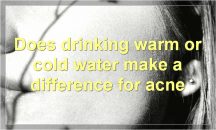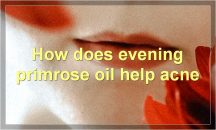Acne is one of the most common skin conditions in the world, affecting millions of people of all ages. Neosporin is an over-the-counter antibiotic ointment that is commonly used to treat cuts, scrapes, and burns. But can it also be used to treat acne?
Does Neosporin help acne scars
Neosporin is an over-the-counter ointment that is commonly used to treat minor cuts, scrapes, and burns. It is also sometimes used to treat acne scars.
There is no scientific evidence to support the claim that Neosporin can help heal acne scars. However, some people believe that the ointment can help reduce the appearance of scars by keeping the area moisturized and preventing scabbing.
If you are considering using Neosporin on your acne scars, it is important to speak to a dermatologist first. This is because there is a risk of the ointment causing further irritation or infection.
How long does it take for Neosporin to help acne

Neosporin is an over-the-counter ointment that is commonly used to treat minor cuts, scrapes, and burns. It is also sometimes used to treat acne. However, there is no scientific evidence to support the use of Neosporin for acne.
Neosporin is an antibiotic ointment that contains the active ingredient bacitracin. This ingredient helps to kill bacteria and prevent infections. Neosporin also contains other ingredients, such as petrolatum and lanolin, which help to soothe the skin and promote healing.
There is no evidence to suggest that Neosporin is effective in treating acne. However, some people may find that it helps to reduce inflammation and redness associated with acne. If you decide to try using Neosporin for your acne, be sure to apply it only to the affected areas of your skin. Avoid applying it to healthy skin, as this could lead to irritation or dryness.
It is unclear how long it takes for Neosporin to work on acne. Some people may see results within a few days, while others may not see any improvement for several weeks. If you do not see any improvement after using Neosporin for several weeks, you may want to consider trying another treatment option for your acne.
What are the side effects of using Neosporin on acne
Neosporin is an antibiotic ointment that is commonly used to treat minor cuts, scrapes, and burns. It is also sometimes used to treat acne. However, there is no scientific evidence to support the use of Neosporin for acne, and there are potential side effects associated with its use.
The active ingredients in Neosporin are bacitracin, neomycin, and polymyxin B. These antibiotics work by killing bacteria on the skin. However, they can also kill good bacteria that are important for keeping the skin healthy. This can lead to dryness, redness, and irritation.
In addition, Neosporin contains petroleum jelly, which can clog pores and lead to breakouts. Therefore, it is important to talk to a dermatologist before using Neosporin on acne. They can help you determine if it is safe and effective for you based on your individual skin type and acne severity.
Can Neosporin make acne worse
Neosporin is an over-the-counter topical antibiotic ointment that is commonly used to treat small cuts, scrapes, and burns. Neosporin contains the active ingredients of neomycin, polymyxin B, and bacitracin, which work together to kill bacteria and help prevent infection. Although Neosporin is generally safe and effective, there is some evidence that it can actually make acne worse.
Acne is a common skin condition that is characterized by the formation of pimples, blackheads, and whiteheads. Acne occurs when the hair follicles become clogged with sebum, an oily substance produced by the sebaceous glands. When the follicles become blocked, bacteria can grow and cause inflammation.
There are several theories as to why Neosporin may make acne worse. One theory is that the ointment can block pores and trap bacteria. Another theory is that the antibiotics in Neosporin can kill the good bacteria that normally keep the bad bacteria in check. This can lead to an overgrowth of bad bacteria, which can cause inflammation.
If you are using Neosporin to treat acne, it is important to follow the directions on the package carefully. Be sure to wash your face before applying the ointment and avoid getting it on healthy skin. It is also important to choose a non-comedogenic formula, which will not clog pores. If you experience any adverse effects, such as increased redness or swelling, stop using Neosporin and see your doctor or dermatologist.
How often should I use Neosporin on my acne
Neosporin is an over-the-counter topical antibiotic ointment that contains the active ingredient bacitracin. It’s commonly used to treat minor cuts, scrapes, and burns. Neosporin can also be used to treat acne.
Acne is a common skin condition that occurs when hair follicles become clogged with oil and dead skin cells. The resulting inflammation can lead to redness, swelling, and pimples. While there are many treatments available, some people prefer to use natural remedies like Neosporin.
So, how often should you use Neosporin on your acne? There is no one answer to this question as it depends on the severity of your acne and your individual skin type. However, we can give some general guidelines.
For mild acne, you may only need to apply Neosporin once or twice a week. For more moderate cases, you may need to use it three to four times a week. And for severe acne, you may need to use it daily or even multiple times a day.
Before using Neosporin on your acne, it’s important to cleanse your skin thoroughly. This will help remove any dirt, oil, and bacteria that could aggravate your acne. Once your skin is clean, simply apply a small amount of Neosporin to the affected area. You can do this with your fingers or a cotton swab.
Be sure not to use too much Neosporin as this could lead to excessive drying and irritation. If you experience any redness, swelling, or pain after applying Neosporin, stop using it immediately and consult your doctor.
Is Neosporin a good spot treatment for acne

Neosporin is a topical antibiotic ointment that is commonly used to treat minor cuts, scrapes, and burns. It is also sometimes used as a spot treatment for acne.
Acne is a common skin condition that affects people of all ages. It is characterized by the appearance of pimples, blackheads, and whiteheads. Acne can be caused by a number of factors, including hormones, genetics, and dietary choices.
There is no one-size-fits-all solution for acne, but there are many treatments available. Some people find that over-the-counter (OTC) medications work well for them, while others may need to see a dermatologist for prescription medication.
Neosporin may help to reduce the inflammation associated with acne. It can also help to prevent infection of the pimples. However, it is important to remember that Neosporin is not a cure for acne and it will not get rid of pimples overnight.
If you are considering using Neosporin as a spot treatment for acne, it is important to talk to your dermatologist first. They can help you to determine if this is the right option for you and can provide guidance on how to use it safely.
Should I moisturize after using Neosporin on my acne
Acne is a common skin condition that can cause a lot of irritation. Neosporin is an over-the-counter antibiotic ointment that can be used to treat mild acne. It is important to moisturize after using Neosporin on your acne in order to prevent further irritation and dryness.
There are a few different ways that you can moisturize after using Neosporin on your acne. One way is to use a gentle, non-comedogenic moisturizer that will not clog your pores. Another way is to apply a thin layer of coconut oil or jojoba oil to your skin. These oils are both very hydrating and can help to soothe irritated skin.
It is also important to avoid picking at your acne while it is healing. Picking can cause more irritation and can lead to scars. If you must touch your face, be sure to wash your hands thoroughly first.
If you follow these simple tips, you should be able to heal your acne quickly and without any further irritation.
What are some other ways to treat acne besides Neosporin
Acne is a common skin condition that affects millions of people around the world. While there are many over-the-counter and prescription treatments available, some people prefer to treat their acne with natural remedies.
One popular natural remedy for acne is apple cider vinegar. Apple cider vinegar contains acetic acid, which is thought to kill bacteria and reduce inflammation. To use apple cider vinegar as an acne treatment, dilute it with water and apply it to the skin with a cotton ball or swab. Leave it on for a few minutes before rinsing it off.
Another option is to make a mask out of honey and cinnamon. Honey is a natural antibacterial agent, while cinnamon is thought to help reduce redness and swelling. To make the mask, mix equal parts honey and cinnamon and apply it to the face. Leave it on for 10-15 minutes before rinsing it off.
If you’re looking for a more traditional acne treatment, consider using Neosporin. Neosporin is an antibiotic ointment that can help kill bacteria and reduce inflammation. It’s important to note that Neosporin should only be used as a spot treatment and not as an all-over acne treatment. Apply a small amount of Neosporin to the affected area and leave it on for a few hours or overnight. Rinse it off in the morning.
There are many other natural remedies that can be used to treat acne. Some other options include aloe vera, green tea, and witch hazel. Experiment with different remedies to see what works best for you.
I have sensitive skin, will Neosporin still help my acne
If you have sensitive skin, you may be wondering if Neosporin will still help your acne. The short answer is yes, Neosporin can still help your acne, but you may need to take some extra steps to ensure that it does not cause any irritation.
Neosporin is an antibiotic ointment that is commonly used to treat minor cuts and scrapes. It can also be used to treat acne. The active ingredients in Neosporin are neomycin and polymyxin B, which are antibiotics that kill bacteria.
Acne is caused by a build-up of sebum, dead skin cells, and bacteria in the pores. This can lead to inflammation and redness. Neosporin can help to reduce the redness and inflammation associated with acne by killing the bacteria that are causing the problem.
When using Neosporin on sensitive skin, it is important to take some precautions to avoid irritation. First, always test the ointment on a small area of your skin before applying it to your face. This will help you to see how your skin reacts to the ointment and determine if it is safe for you to use.
Second, when applying Neosporin to your face, be sure to avoid contact with your eyes, nose, and mouth. If the ointment does get into these areas, rinse immediately with water.
Third, only apply a thin layer of Neosporin to the affected area. Overuse of the ointment can actually make your acne worse.
If you follow these tips, you should be able to use Neosporin on your sensitive skin without any problems.
My acne is really bad, will Neosporin help clear it up quickly
Acne is one of the most common skin conditions, affecting millions of people around the world. While there is no cure for acne, there are many treatments available that can help to clear up the skin. Neosporin is a topical antibiotic that is commonly used to treat minor cuts and scrapes. However, some people also believe that Neosporin can help to clear up acne.
There is no scientific evidence to support the use of Neosporin for acne, but some people swear by it. If you want to try using Neosporin for your acne, it’s important to first cleanse your skin and then apply a thin layer of the ointment to the affected area. You should not apply Neosporin to broken skin, as this could lead to an infection.
If you’re looking for a quick fix for your acne, Neosporin might not be the best option. However, it’s worth trying if you’ve tried other treatments without success.





